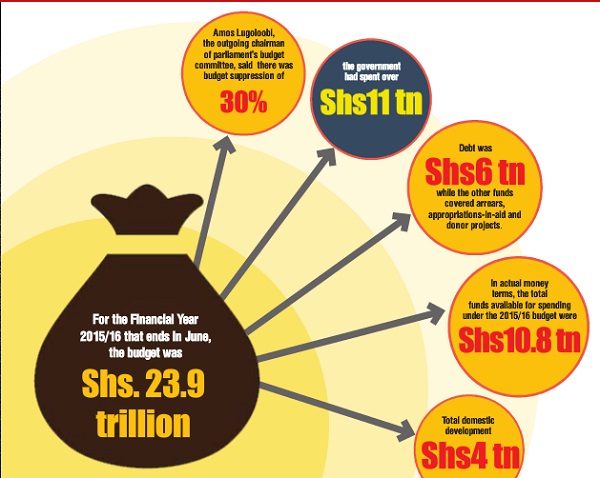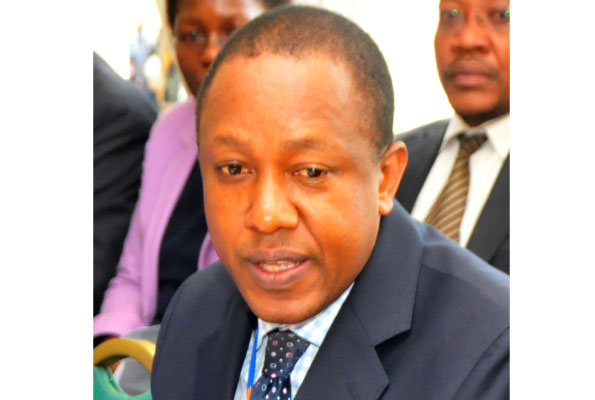
The net effect of whatever suppression occurred, however, has been a failure of several government departments and ministries to meet basic obligations, including paying salaries and suppliers.
An official at a commission that independently collects revenue from sector players told The Independent that due to the financial squeeze, government was looking to organisations like his for funds.
“Government does not have money,” the official said.
East Africa’s richest man, Sudhir Ruparelia, who rarely talks to the media, told The Independent last week that government had not released any money since October. This might have been an exaggeration on Sudhir’s part, according to officials at the Finance Ministry. They explained that the tycoon who operates Uganda’s third biggest bank by assets—Crane Bank— showed he had no idea of things when he described the economy as being “in bad shape”.
The Independent has learnt that as a major landlord to government, Sudhir had not been paid rent arrears in a while by the time he made the comment.
Away from Sudhir’s comments, several officials in different government ministries, departments and agencies (MDAs), intimated to The Independent that they were stranded and incapable of implementing budgeted for projects. In some instances officials were showing up late at work and spending just a few hours before leaving again.
Slowdown in operations
A junior officer at one of the government departments also told The Independent on conditions of anonymity that because they did not have money for basic operations, including buying fuel for the generator, they would just leave whenever power was not on.
In this specific department, officials are paid what is called “top up allowance” on top of their salaries as an incentive to retain them but for two months, they had not received it.
Research by The Independent shows that the ministries of Trade, Water, Energy, Education, Tourism, Health and Agriculture Ministries were among those most severely affected.
The financial squeeze was biting so badly that even when Keith Muhakanizi, the Secretary to the Treasury, announced the last budget release for this financial year on May 13, the news did not attract the usual excitement from the government ministries, departments and agencies (MDAs), and the private sector.
Rather, the release was received as a major relief by MDAs, which have been under intense pressure to pay suppliers and run operations.
At the Uganda Police, which was the biggest recipient of the last budget release for this financial year, budget controllers had failed to pay salaries for months and quickly disbursed them to officers weary of running around chasing opposition leader Kizza Besigye and ensuring President Yoweri Museveni’s swearing in on May12 ended without incident.
But Mugambe easily dismisses any claims that government had heavily suppressed the budget and deprived its departments from spending money as budgeted.
“Yes, there has been some suppression but it was not that significant,” Mugambe said, “Do not listen to those politicians, they will mislead you.”
“You look at the figures yourself,” he said handing this reporter a document titled `budget operations table FY 2015/16’.

Mugambe said, in fact, the government had exceeded budgeted expenditure by 1.7 percentage points. He explained that, excluding money the government spent on Bank of Uganda capitalisation, on the Karuma, Isimba hydropower dam project, and on debt servicing, the government had spent 101.7 percent of the total budget.
For the Financial Year 2015/16 that ends in June, the budget was Shs. 23.9 trillion. Of this total, salaries were Shs2.89 trillion, total Non-Wage recurrent expenditure took Shs4 trillion, total domestic development Shs4 trillion, debt Shs6 trillion, while the other funds covered arrears, appropriations-in-aid and donor projects.
In actual money terms, the total funds available for spending under the 2015/16 budget were Shs10.8 trillion. It is under this that government has instead spent 101.78 percent or Shs11 trillion.
Mugambe says critics blaming the government for the tight liquidity situation in the economy do not know the government is not the biggest spender in the economy.
“Government expenditure is about 23 percent of GDP,” he said, “there are private transactions that are always going on.”
He said because of the politics—uncertainty over elections—Foreign Direct Investment (FDI) had gone down.
He said the $ 200 million that government borrowed from PTA Kenya was meant to stablise the currency.
“We applied for its approval two months ago but parliament just approved it a few weeks ago and we haven’t spent it,” Mugambe said, “it is all there.”
 The Independent Uganda: You get the Truth we Pay the Price
The Independent Uganda: You get the Truth we Pay the Price



